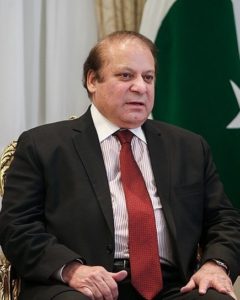Panama Papers Implicate Family Members of Pakistan’s Prime Minister
 On November 3, the Supreme Court of Pakistan ordered Pakistani Prime Minister Nawaz Sharif’s children, Maryan, Hussain, and Hassan, to submit replies to allegations concerning their involvement in illegal financial activity. The revelation that the three had stored money in companies located abroad formed part of the broader leak of the Panama Papers, which occurred on April 3.
On November 3, the Supreme Court of Pakistan ordered Pakistani Prime Minister Nawaz Sharif’s children, Maryan, Hussain, and Hassan, to submit replies to allegations concerning their involvement in illegal financial activity. The revelation that the three had stored money in companies located abroad formed part of the broader leak of the Panama Papers, which occurred on April 3.
All three members of the Sharif family sought to separate themselves from their father in their responses to the Supreme Court. Maryam’s lawyer assured the media that his client paid taxes and was merely a trustee, rather than a beneficiary, of the firms Nielsen Enterprises Limited and Nescoll Limited, based in the British Virgin Islands. Maryam herself denied being the Prime Minister’s dependent, but admitted that the two firms owned her family’s apartments in London. Meanwhile, Hussain and Hassan stated that they are non-resident Pakistanis who have been conducting lawful business abroad for years.

The above claims, however, were not accompanied by any supporting documentation, an oversight that prompted the Supreme Court to demand that the three submit relevant documents by November 15. Once the Supreme Court receives the appropriate evidence, it will decide whether to form a commission to move the case forward.
The Pakistan People’s Party, which constitutes the opposition party in the Pakistani Senate, indicated that it did not want such a commission to be formed. The Senate opposition leader, Aitzaz Ahsan, told reporters that the formation of the commission would slow down the process, saying, “If you want to decide the case quickly, then the SC should decide the case itself on the basis of the terms of reference contained in the opposition’s bill.” He also criticized the amount of time given to the Sharifs, stating that it would provide them with the opportunity to fabricate evidence.
The Pakistani public has demonstrated increasing skepticism with regard to the efficacy and trustworthiness of its government. Corruption remains a common problem for the Pakistani state, and the implication of the Prime Minister and his family in the Panama Papers will likely muddy public opinion further.
